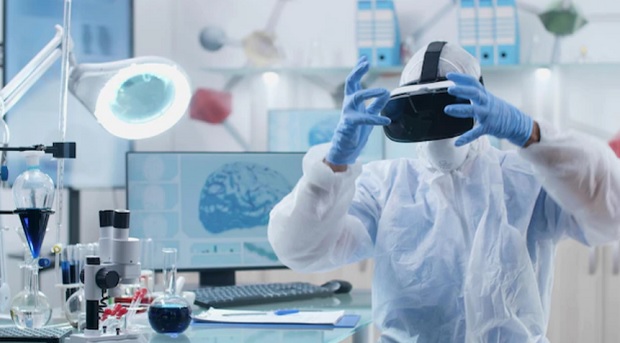Google’s parent company, Alphabet, is beefing up its investments in technology research and applications to streamline the work of health professionals and enable patients to easily access care.
To provide updates on their latest slew of innovations in the works, representatives from across Alphabet’s companies presented during Google Health’s annual briefing, dubbed “The Check Up”, last March 24.
Among the most interesting of the presentations were given by Health AI at Google. Greg Corrado, head of Health AI, explained how his team is looking into utilizing artificial intelligence (AI) to improve ultrasound readings, enable smartphone cameras to detect diseases, and explore the capability of smartphone microphones to record heart sounds.
Ultrasound is a non-invasive diagnostic imaging method used in prenatal care to identify issues early during pregnancy. Corrado, though, noted that more than half of mothers in middle- to low-income countries did not have access to ultrasounds, partly due to the lack of experts trained to read them.
In line with this problem, he announced that Health AI at Google would soon be publishing open-access research that validates the use of AI to help providers conduct ultrasounds and perform assessments. This research could eventually lead to increased ultrasound access since less training would be required to interpret the ultrasounds.
Corrado also talked about his team’s efforts to explore the applications of smartphones in healthcare. With over 6.2 billion smartphone users worldwide as of 2021, these investigations could potentially increase access to health evaluations outside clinics.
For instance, one of their recent investigations aims to discover if a smartphone’s built-in microphone can detect and record heartbeats and murmurs when the phone is placed over the chest. If confirmed, this ordinary phone feature could improve early detection rates of heart valve disorders.
Besides these studies, Health AI and several partners are building on past research on tabletop cameras to assess if photos from smartphone cameras can aid the detection of diabetes and non-diabetes diseases from the external eye.
Fitbit was another Alphabet company that hopes to develop methods of early detection with its wearable fitness technology. This company, though, focused on cardiovascular issues, particularly atrial fibrillation (AFib), which is an irregular heart rhythm that could lead to blood clots.
In a 2020 study covering over half a million Fitbit users, the company tested their PPG (Photoplethysmography) AFib algorithm. This algorithm passively examined heart rate data to detect an irregular heart rhythm.
The study eventually showed that their algorithm found undiagnosed AFib 98% of the time. Since coming to this finding, Fitbit has embarked the next step to bring this algorithm to all consumers and submitted it to the US FDA for review.
More innovations tailored to health-conscious Internet users were revealed by Google Search and YouTube. These platforms recently rolled out or expanded features to improve the dissemination of accurate health-related information.
Google Search product manager Jackie DeJesse pointed out that the average wait time for primary care in the US is 20 or more days. To help reduce these waiting times, Google’s Search’s newest health update is the appointment availability feature.
This feature allows users to view then book the most convenient available appointment dates and times for doctors in their area. Unfortunately, it is currently only available in certain American states.
The spread of health-related misinformation during the pandemic, especially on the Covid-19 vaccines, continues to be a major issue. To combat the spread of misinformation on its platform, YouTube partnered with leading health organizations and public health experts throughout 2021 to increase the volume and visibility of authoritative health content.
Last week in Japan, Brazil, and India, YouTube added health source information panels on videos to assist viewers in identifying content from credible sources. It also released health content shelves that emphasize videos from these sources when people search for specific health topics. YouTube plans to expand these features to other Asian countries in the upcoming months.
Speaking at a press briefing a few days before the event, Dr. Karen DeSalvo, chief health officer of Google, said “We wanted to share with you how we think about health at Google.”
“The lessons that we’ve learned in this work in the pandemic has very much strengthened our resolve that we can and we should apply our technologies to help everyone everywhere. Not only in times of crises, but in their everyday health needs,” she stated.




